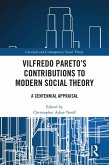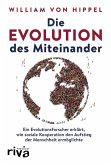In the past, the European social sciences labelled and discredited knowledge that did not conform to their own definition of scientific knowledge as an alternative kind of knowledge, as 'indigenous' knowledge. Perception has changed with time: not only has indigenous knowledge become an entrance ticket to the world of European social science, but the indigenization of European theories is seen by some as the contribution of peripheral social sciences to join the theories of the centers. This book offers contributions to the conversation on alternative concepts of knowledge, inviting the reader to decide if they are truly alternative, indigenous, or European types of knowledge.
Dieser Download kann aus rechtlichen Gründen nur mit Rechnungsadresse in A, B, BG, CY, CZ, D, DK, EW, E, FIN, F, GR, HR, H, IRL, I, LT, L, LR, M, NL, PL, P, R, S, SLO, SK ausgeliefert werden.









